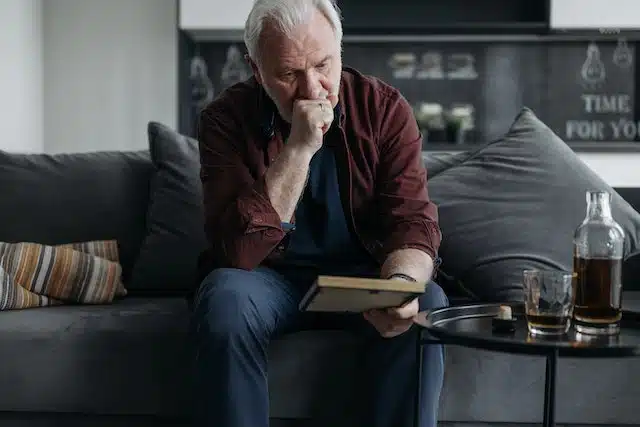Alone At Home: Common Risks Faced By Elderly People

In the 2021 census, over 11 million people – or 18.6% of the population – were over the age of 65.
In the 2011 census, this figure was closer to 16.4%.
Getting older means you may have to adapt your lifestyle to keep yourself safe. This is especially true if you are living alone or have infrequent visitors.
Loneliness And Lack Of Health Awareness
Lockdowns highlighted how much social isolation can impact physical and mental health.
It is important to remember that older adults live in isolation even with the lockdown measures long gone.
Being alone can mean that getting the appropriate help can be challenging in an emergency.
If you were to fall, for example, and were not able to reach the phone, then you could get very ill until someone was able to help you.
Loneliness can have a toll on your mental health as well.
While some older individuals find solace in quiet reflection, others may end up feeling overwhelmed or oppressed by the weight of their own thoughts.
Being alone with your thoughts, without any external stimulus or distractions, can lead to introspection, but also increase the risk of dwelling on negative feelings, anxiety, or past failures.
For those who are prone to depression or have an existing vulnerability, this period of self-reflection may exacerbate existing mental health issues or create new ones.
It is crucial to maintain a balance between quiet moments for self-reflection and engaging in healthy social activities that provide joy and emotional well-being.
By striking this delicate balance, individuals can avoid falling into the trap of introspective depression when left alone with their thoughts.
Being alone with your thoughts can lead to depression.
If you feel depressed, speak to your GP for some help and advice.
If people are living in social isolation, symptoms of wider health issues can go unmissed.
This can happen with medical conditions, such as UTIs, that can be slower to become apart.
UTIs can have a huge impact on someone’s health, especially if they are older.
Physical Hazards When Living Alone
Falls are one of the most common causes of accidents in the home.
There are plenty of hazards around, from items obstructing walkways to uneven flooring.
Falls can also happen outside of the home, such as in a shop or through uneven paving.
If you have had a fall due to the negligence of someone else, you may be entitled to claim compensation.
How can you reduce the risks?
When it comes to reducing the risk of falls, prevention is key.
Make sure there are not any unnecessary hazards on the floor that may result in a trip.
If you have trouble walking without support, invest in some transition bars to make moving from room to room easier when you move from carpet to wooden floor, for example.
You may also benefit from having someone regularly check in on you to make sure you are coping.
This could be in the form of private nursing care or a community volunteer.
Living in isolation can be hard, but there are services specifically designed to combat loneliness.
For example Silver Line offers a 24-hour phone-in service so you can chat with someone whenever you are feeling alone.
There may also be community programs for you to get involved with.
Find out where your local day centre is and see what they offer.
There is usually a wide range of activities from singing to quizzes and day trips.
To mitigate these risks and ensure the safety and well-being of seniors who choose to live alone, it is essential to create a strong support network.
Using various strategies that allow them to remain independent while maintaining necessary safeguards.
Some suggestions include installing fall prevention equipment at home, and regularly engaging with family members or friends.
Also staying physically active as much as possible, and considering a personal emergency response system.





